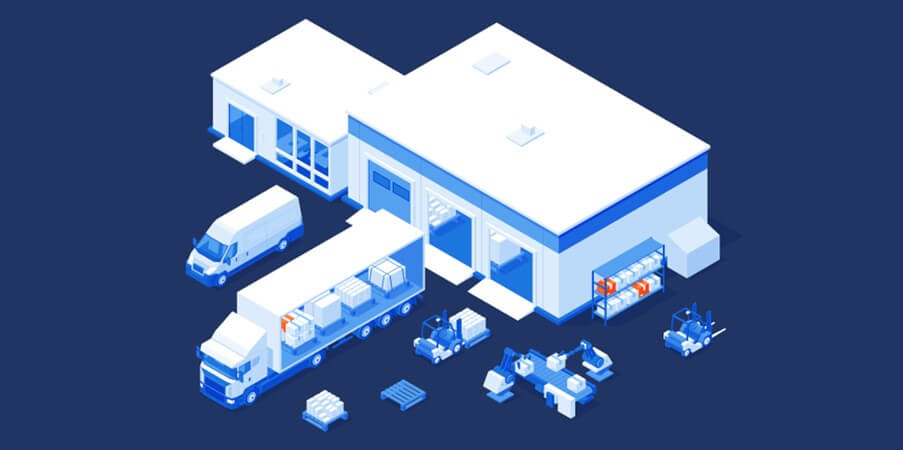
Clinical Trial Logistics
Clinical trials are the backbone of medical advancements, leading to new treatments and therapies that can significantly improve patient outcomes. Behind the scenes of every successful clinical trial lies a complex web of logistics that ensures the trial runs smoothly from start to finish. Managing these logistics is a monumental task that requires meticulous planning, coordination, and execution. In this blog, we’ll delve into the multifaceted world of clinical trial logistics, exploring the key components and challenges involved.
The Importance of Clinical Trial Logistics
Clinical trial logistics encompasses all the processes and systems necessary to conduct a clinical trial, including the movement of materials, data, and personnel. Effective logistics are crucial for several reasons:
- Patient Safety and Compliance: Ensuring that medications and materials are delivered in optimal conditions is essential for patient safety. Proper logistics also help maintain compliance with regulatory requirements.
- Data Integrity: Accurate and timely data collection is vital for the validity of a clinical trial. Logistics play a key role in ensuring that data is collected and transported securely and efficiently.
- Cost Management: Efficient logistics can significantly reduce the costs associated with clinical trials by minimizing delays and avoiding wastage of materials.
Key Components of Clinical Trial Logistics
Planning and Coordination:
The planning phase involves designing the trial, selecting sites, and identifying the necessary materials and equipment. Coordination between various stakeholders, including sponsors, clinical research organizations (CROs), and site staff, is critical to ensure everyone is on the same page.
Supply Chain Management:
Managing the supply chain for a clinical trial involves sourcing, storing, and distributing investigational drugs, medical devices, and other necessary materials. This process must be tightly controlled to maintain the integrity and efficacy of the products.
Regulatory Compliance:
Navigating the regulatory landscape is one of the most challenging aspects of clinical trial logistics. Each country has its own set of regulations, and trials must comply with all relevant guidelines to ensure patient safety and data validity. This often involves obtaining permits, adhering to Good Manufacturing Practices (GMP), and ensuring proper labeling and documentation.
Site Management:
Selecting and managing trial sites is another critical component. This includes site selection, initiation, monitoring, and closeout. Effective site management ensures that trials are conducted consistently and according to protocol across all locations.
Patient Recruitment and Retention:
Recruiting and retaining patients is a significant logistical challenge. It involves identifying eligible participants, obtaining informed consent, and keeping patients engaged throughout the trial. Logistics teams must ensure that patients have easy access to trial sites and that any travel or accommodation needs are met.
Data Management:
Collecting, transporting, and analyzing data securely and efficiently is paramount. This involves using electronic data capture (EDC) systems, ensuring data is anonymized and protected, and complying with data protection regulations such as GDPR.
Transportation and Storage:
Transporting clinical trial materials, including biological samples and investigational drugs, requires specialized logistics. These materials often need to be stored and transported under specific conditions, such as controlled temperatures, to ensure their integrity. This requires careful planning and the use of specialized packaging and transportation services.
Challenges in Clinical Trial Logistics
Despite the best planning, several challenges can arise during clinical trials:
Complex Regulatory Environment:
Navigating the myriad of regulations across different countries can be daunting. Changes in regulations can also occur during the trial, necessitating quick adaptations.
Supply Chain Disruptions:
Disruptions in the supply chain, whether due to natural disasters, political instability, or other unforeseen events, can delay trials and increase costs.
Patient Recruitment:
Finding and retaining enough eligible participants is often a major hurdle. Recruitment rates can be affected by factors such as trial design, patient population, and competition from other trials.
Technological Integration:
Integrating various technologies, such as EDC systems, remote monitoring tools, and data analysis platforms, can be complex. Ensuring these systems work together seamlessly is critical for trial success.
Cost Management:
Clinical trials are expensive, and managing costs while maintaining quality is a constant challenge. Unexpected expenses can arise, and logistics teams must be adept at handling budget constraints.
The Future of Clinical Trial Logistics
As the field of clinical trials continues to evolve, so too will the logistics that support them. Emerging technologies such as artificial intelligence (AI), blockchain, and advanced data analytics hold promise for improving efficiency and accuracy in clinical trial logistics. AI can help with predictive modeling for patient recruitment and supply chain management, while blockchain can enhance data security and transparency.
Additionally, the trend towards decentralized clinical trials (DCTs), where trials are conducted remotely using digital health technologies, is reshaping logistics. DCTs reduce the need for patients to travel to trial sites, potentially improving recruitment and retention rates. However, they also introduce new logistical challenges, such as ensuring that patients have the necessary technology and support at home.
In conclusion, clinical trial logistics is a dynamic and complex field that plays a crucial role in the success of medical research. By understanding and addressing the various logistical challenges, stakeholders can help ensure that clinical trials are conducted efficiently, ethically, and effectively, ultimately leading to better health outcomes for patients worldwide.





